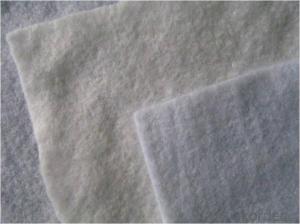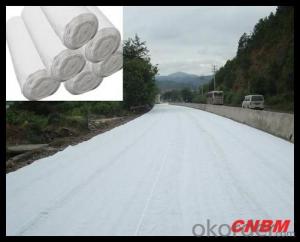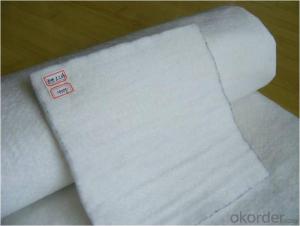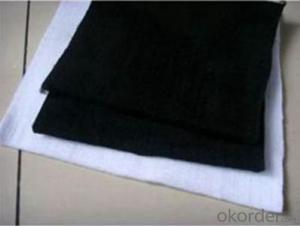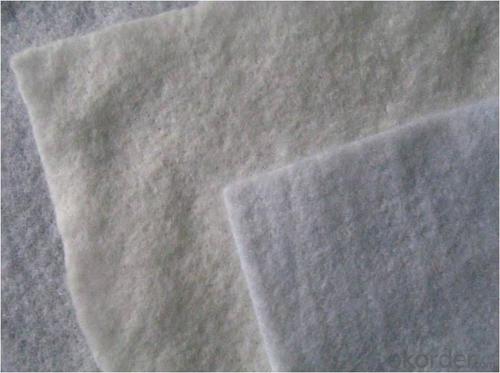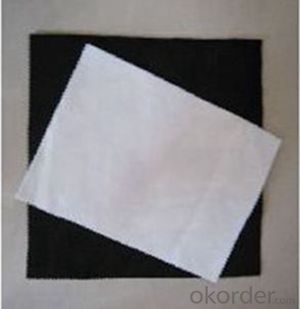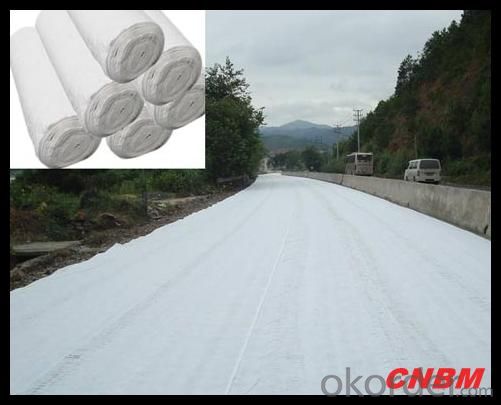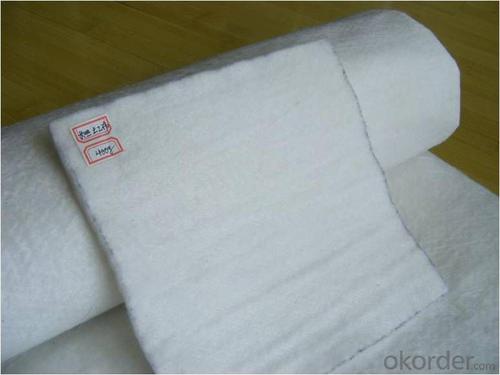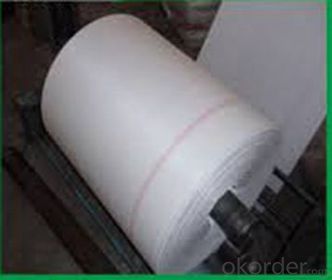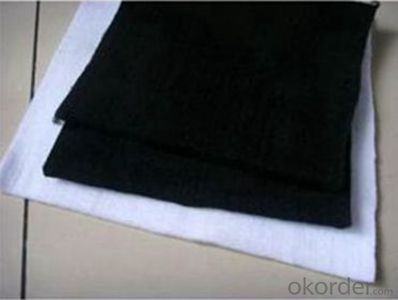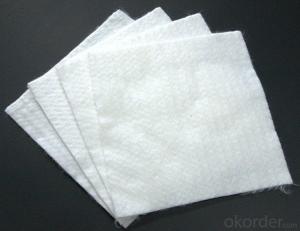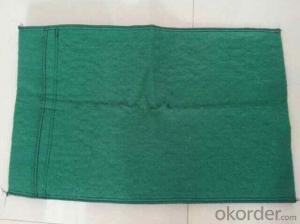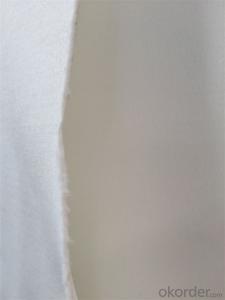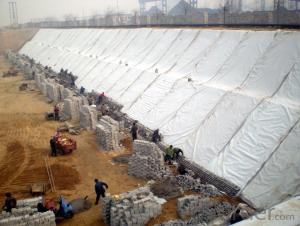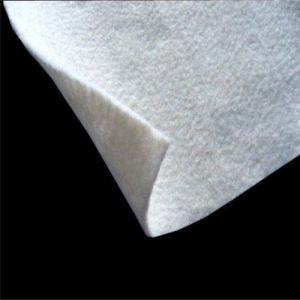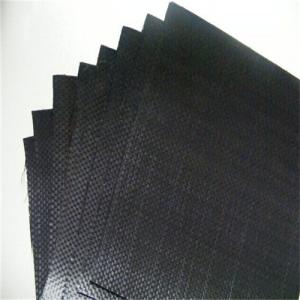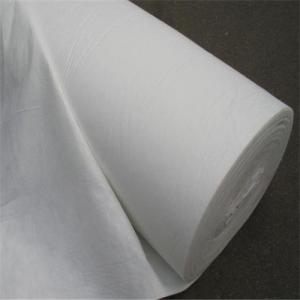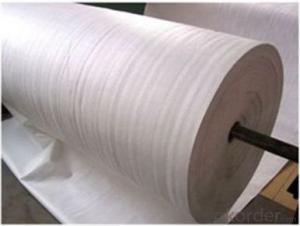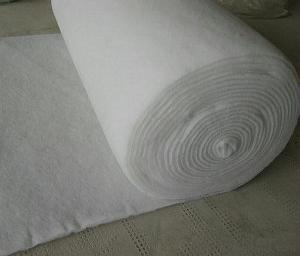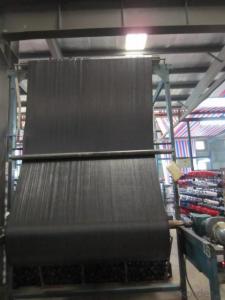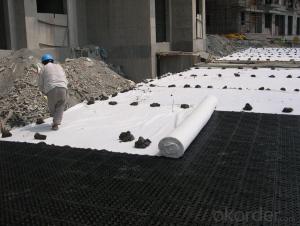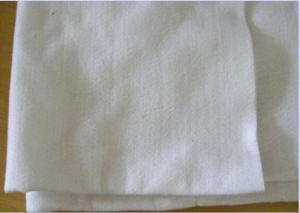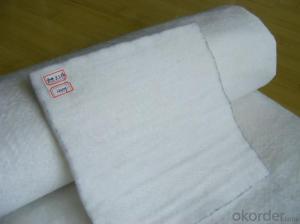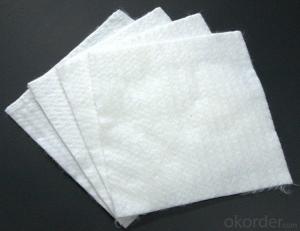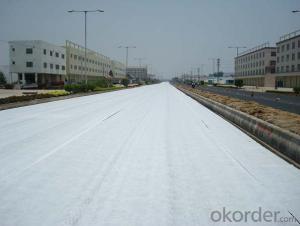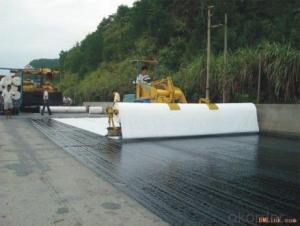Woven Polypropylene Geotextile Fabric for Road Construction CNBM
- Loading Port:
- China main port
- Payment Terms:
- TT OR LC
- Min Order Qty:
- 4000 m²
- Supply Capability:
- 1000000 m²/month
OKorder Service Pledge
OKorder Financial Service
You Might Also Like
Specification
Product Description:
Nonwoven Geotextile Fabric for Road Construction Geotextile
Product Features
|
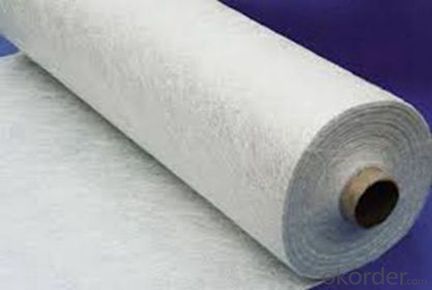
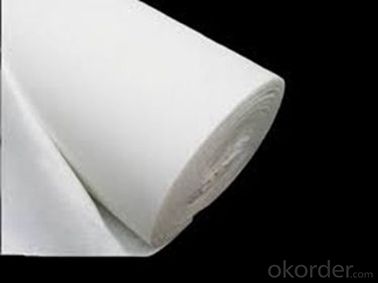
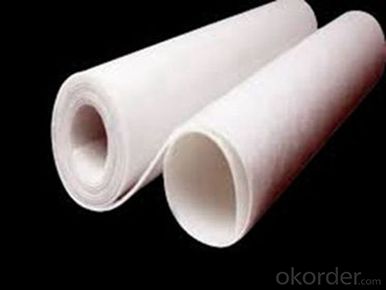
After-sales service
1.In order to provide customers with comprehensive technical support,we will provide technical and other related information upon request in a timely manner.
2.In required,we will appoint specialized technicians to the construction site to give technical trainings to construction people,and offer technical guidance throughout the whole construction process.
3.For damage due to shipment and delivery,after we receive the complaint,we will check the issure through provided pictures and videos.If our responsibility is confirmed,we wil offer free replacement.
4.When the construction is completed,as your request,our technical staff may participate in the final acceptance.
FAQ:
Q: What kind of payments does jenor support?
A: T/T, L/C, Cash are accepted.
Q: Do you charge for the samples?
A: Accordeing to our company policy, the samples are free, we only charge the freight fee. And we will return the freight fee during the next order.
Q: Can you produce according to customers' design?
A: Sure, we are professional manufacturer, OEM and ODM are both welcome.
Q: Do you have other products?
A: Yes, please check the pictures:
Packaging & Shipping
Packing: PLASTIC FILM INSIDE, AND WOVEN BAG OUTSIDE
Shipping: About 15 days after receipt the deposit
geotextile fabric
permeability,filtration,easy for construction
ISO and CE certificate
Good quality and competitive price
- Q: How do geotextiles help in stabilizing railroad tracks?
- Geotextiles help in stabilizing railroad tracks by providing reinforcement and separation between the subgrade and the ballast layer. They prevent the mixing of fine particles from the subgrade with the ballast, thereby maintaining its integrity and preventing track settlement. Geotextiles also distribute the load evenly, reducing the stress on the subgrade and improving track stability and longevity.
- Q: How do geotextiles help in sediment control?
- Geotextiles help in sediment control by acting as a barrier that prevents soil erosion and the movement of sediment. They are designed to allow water to pass through while trapping sediment particles, thus reducing the amount of sediment that flows into nearby water bodies. Additionally, geotextiles can be used in combination with other erosion control practices to stabilize soil, promote vegetation growth, and minimize the impact of sediment runoff on the environment.
- Q: Weaving geotextile construction should pay attention to what
- Weaving geotextile construction specifications: 1, before the construction of roadbed should be integrated clean up, the surface shall not have sharp corners. 2, geotextile is best to use mechanical erection, can also be used artificial laying. When laying, it should be noted that the rough side of the singeing up, and then one end fixed with a fixed, mechanical or human tension, tensile elongation of about 1 & amp;% to 1 & amp;%, Facing front laying. The fixture includes fixed and fixed metal. Fixed nails should be used cement nails or nails, nail length 8 ~ 10cm fixed iron can be thick lmm, width 3mm of the strip. 3, weaving geotextile and the length of the long, should be used industrial sewing machine sewing, sewing method using "dow" and "seam". Suture and geotextile should have a significant color difference in order to facilitate inspection.
- Q: How are geotextiles tested for quality assurance?
- Geotextiles are tested for quality assurance through various methods such as tensile strength testing, puncture resistance testing, water permeability testing, and UV resistance testing. These tests ensure that geotextiles meet the required standards and can perform effectively in their intended applications.
- Q: What are the advantages of using geotextiles in soil erosion prevention?
- Geotextiles offer several advantages in soil erosion prevention, including increased soil stability, improved drainage, and enhanced filtration. These synthetic materials can effectively reinforce soil, preventing its movement and erosion. Geotextiles also allow water to pass through while trapping sediment, reducing the risk of erosion and maintaining the integrity of the soil. Additionally, they are easy to install and cost-effective, making them a practical solution for erosion control in various applications.
- Q: How do geotextiles help with soil erosion on slopes?
- Geotextiles help with soil erosion on slopes by providing a protective barrier between the soil and the forces of erosion. They are placed on the slope to stabilize the soil, prevent water runoff, and promote vegetation growth. The geotextiles allow water to pass through while trapping sediment, preventing it from being washed away. This helps retain the soil in place, reducing erosion and maintaining slope stability.
- Q: How do geotextiles help in preventing the migration of fine particles in soils?
- Geotextiles help in preventing the migration of fine particles in soils by acting as a barrier or filter. They are typically placed between different soil layers or as a cover over the soil surface. The geotextile's permeable structure allows water to pass through while retaining the fine particles in place. This prevents soil erosion and the displacement of fine particles, ensuring soil stability and protecting surrounding areas from sediment contamination.
- Q: Are geotextiles suitable for use in contaminated soil remediation projects?
- Yes, geotextiles are suitable for use in contaminated soil remediation projects. Geotextiles have been proven to be effective in separating and stabilizing soil layers, preventing soil erosion, and controlling sedimentation. They can also act as a barrier to prevent the spread of contaminants, while allowing for proper drainage and filtration. Additionally, geotextiles are durable, cost-effective, and environmentally friendly, making them a suitable choice for remediation projects.
- Q: Can geotextiles be used in underground drainage systems?
- Yes, geotextiles can be used in underground drainage systems. Geotextiles are often used as a filter and separator in these systems to prevent the migration of fine particles and to enhance the overall performance and longevity of the drainage system.
Send your message to us
Woven Polypropylene Geotextile Fabric for Road Construction CNBM
- Loading Port:
- China main port
- Payment Terms:
- TT OR LC
- Min Order Qty:
- 4000 m²
- Supply Capability:
- 1000000 m²/month
OKorder Service Pledge
OKorder Financial Service
Similar products
Hot products
Hot Searches
Related keywords
